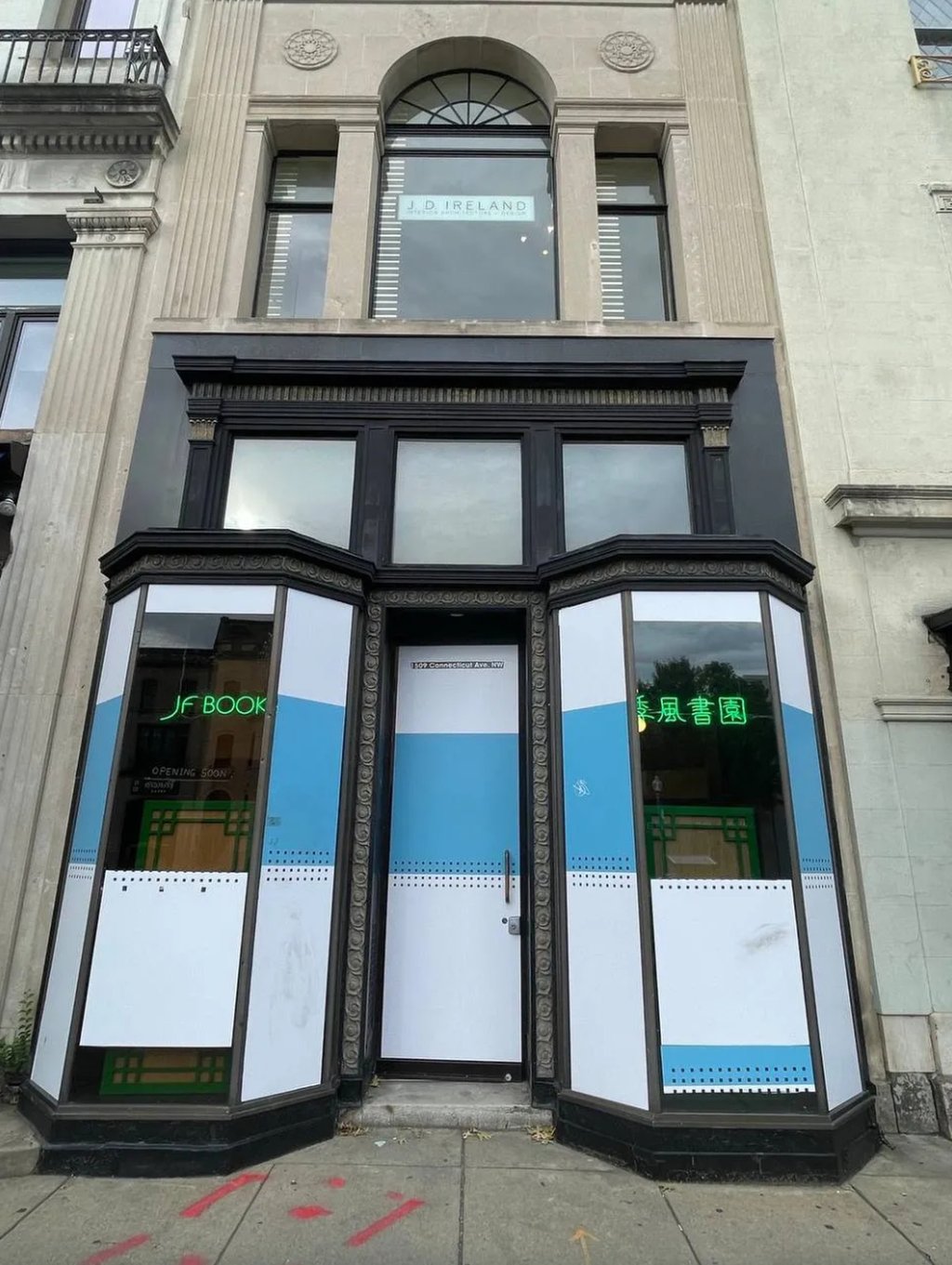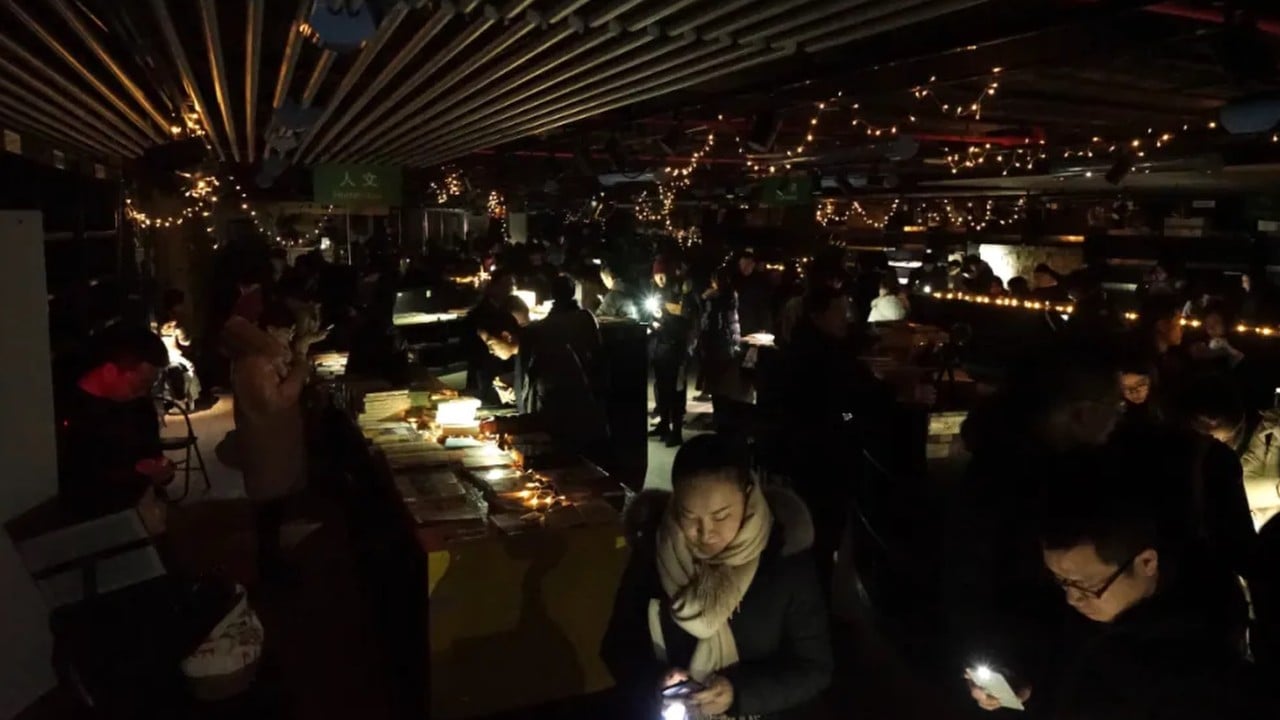A landmark Shanghai bookstore shut down by city authorities six years ago is set to open a new chapter in the United States.
Jifeng Bookstore, once popular with Shanghai’s liberal intelligentsia for its wide range of academic titles and seminars, will reopen as “JF Books” in Washington on September 1.
“After six years, in a new country, we have dedicated our hearts and souls to restart Jifeng and bring the only Chinese bookstore to Washington DC,” Jifeng Bookstore owner Yu Miao said in a WeChat post on Saturday.
Jifeng, or “monsoon”, comes from the store’s slogan: “There is a crack in everything, and that is how the monsoon blows in.”

Yu’s post was shared widely online among intellectuals, media professionals and book lovers in China.
“No bookstore in Shanghai can ever surpass Jifeng,” one popular comment read.
Another said: “The ‘monsoon’ will come back sooner or later.”
Jifeng was founded in 1997 by Yan Bofei, who studied the history of political thought at the Shanghai Academy of Social Sciences.
The bookstore quickly found a market for its range of political, history and philosophy titles, expanding to eight branches around Shanghai at its peak.
The stores also hosted talks by a number of leading academics in the humanities and social sciences.
But by the time Yu, a successful businessman with an interest in social issues, bought a majority stake in the bookstore in 2013, Jifeng was already under pressure from rising rents. In the following years, three branches had to close over costs and accusations by authorities that they did not have a licence.
Jifeng’s main bookstore, its last outlet standing, finally closed in January 2018 after being denied a lease renewal.
In 2017, after learning that the lease would not be renewed, Yu told the South China Morning Post that obstruction from local cultural authorities were to blame for the bookstore’s fate.
In his post on Saturday, Yu said Jifeng had hosted more than 800 seminars in the five years before it closed, and the tradition would continue at the new store in Washington.
Some of those seminars were cancelled at the request of the authorities, Yu told the Post in 2017, with topics including the South China Sea, constitutionalism, and the fate of modern Chinese entrepreneurs and intellectuals.

JF Books will sell Chinese humanities and social science books published in Hong Kong and Taiwan, as well as English-language books on China and Asia – many of which are unavailable in mainland Chinese bookstores due to strict censorship.
The last Shanghai store’s closure came as authorities stepped up ideological controls under Xi Jinping, who became Communist Party chief in 2012 and president of China the following year.
Authorities have also clamped down on civil society in recent years. In 2016, the outspoken liberal political magazine Yanhuang Chunqiu stopped publication after being forced to replace its editorial board. It was later relaunched, but took on a very different tone, while all old archives were deleted.
In 2019, the Unirule Institute of Economics, a Beijing-based think tank that advocated a market economy, was shut down by city authorities who cited regulation violations relating to hosting seminars without an official permit.
But independent bookstores, once a common sight in many of China’s major cities, are also struggling because of commercial pressures, and several closed down during the Covid-19 pandemic.
After Jifeng’s last Shanghai outlet closed, Yu and his family moved to Florida.
In the spring of 2022, shortly after the start of a two-month Covid-19 lockdown in Shanghai, the shop’s previously quiet WeChat account suddenly published an article saying: “Let’s shout our dissatisfaction with a clear voice”.
It also recommended several sociology and political science books on the theme of “disobedience”.
The article and Jifeng’s original WeChat account were quickly blocked.
Posting on X, formerly Twitter, in January last year, Yu accused Shanghai police of slapping an exit ban on his wife, Xie Fang, for national security reasons. She was stopped before boarding a flight in August 2022, following a trip to visit her ailing mother earlier that year. She returned to Florida more than eight months later, in May 2023.


